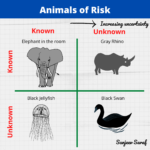Natural gas pipelines have caused incidents leading to fatalities, injuries, and property damages.
To be precise, there have been an average of 50 serious gas pipeline incidents every year in the U.S. between 1990-2009 (Source: http://primis.phmsa.dot.gov/comm/reports/safety/SerPSI.html?nocache=4823) resulting in more than 300 fatalities. Majority of the reported gas incidents have occurred on the gas distribution lines – i.e. gas pipeline systems that are found in thousands of communities from coast to coast and distribute natural gas to our homes and businesses.
It is almost a guarantee that you will hear about gas pipeline incidents in 2010.
Earlier, I have addressed the major causes of pipeline failures. Here I want to raise a different questions which no one appears to be discussing – is there a safer alternative to gas pipelines?
The most common uses of gas coming into homes are cooking and heating. When I lived in New Hampshire my place was heated by gas. Granted heating homes via gas is cheaper but the electric heating poses lower risks.
I can envision one option as having gas cylinders instead of gas pipeline at least for cooking.

There are many places in the world that utilize LPG cylinders as opposed to gas pipelines. If you think about it going to gas cylinders from a pipeline, you have applied inherently safer strategies:
If I extend the logic further, one can argue local storage hubs for supplying gas to heat homes and it will still fall in the realm of inherently safer philosophy.
Gas cylinders have two additional benefits (a) distributed energy system and therefore lower vulnerability (b) reduced risks of intentional attack
So…what are the arguments in favor of gas pipelines? Does the benefit of low-cost gas heating justify the risks from gas pipelines?
Is the fact that the gas pipeline infrastructure has been developed and already exists, a sufficient reason for Office of Pipeline Safety to keep collecting incident data?
Concluding Thoughts
In the last couple of years, there has been considerable interest in introducing inherently safer alternatives in chemical facilities. There has been debate about mandating inherent safety. As you think through inherent safety issues and take them to a logical conclusion, you will see how a given non-inherently safer approach also brings benefits. In applying inherent safety principles may not be a trivial exercise for existing facilities and infrastructure.
But what about new facilities and infrastructure – is there an inherently safer alternative for new gas pipelines? Any thoughts?






4 Responses
Though the cylinder usage is safer than pipeline handling of gas cyllinder is very risky activity like accidents of vehicle carrying gas cyllinders. The ulternative i.e. pipeline gas make it more safe by providing inbuilt safety systems can reduce the risk. like sudden drop in pressure will stop the gas will definitely serve the purpose.
A question about your table. How many kilometers and what flow rates for each of the columns? Your table doesn’t give me enough data for the columns Hazardous Liquid, Gas Transmission, Gas Gathering and Gas Distribution, to know the basis. If the number of kilometers of Gas Transmission pipelines have gone up, then there are more chances for accidents etc. One other item, as pipelines, distribution systems get older, the risk for leaks etc go up and increase the chances for accidents. Thus you accelerate and increase chances for accidents when system maintenance is not performed in detail regularly.
@ Prakash
The relative risks have to be weighed by benefits and cost and at the moment I’m not seeing that thought process.
@Mr. Turner
The miles of pipeline have certainly gone up.
Gas pipeline incidents do show a decreasing trend.
If you want further details let me know.